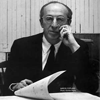24 Jan 2007
Plain Speaking and Singing on Copland’s Family Farm
http://www.nytimes.com/2007/01/23/arts/music/23tend.html?_r=1&ref=music&oref=slogin
https://boydellandbrewer.com/bizet-s-i-carmen-i-uncovered.html
https://boydellandbrewer.com/the-operas-of-sergei-prokofiev.html
https://www.wexfordopera.com/media/news/incoming-artistic-director-rosetta-cucchi-announces-her-2020-programme
https://press.uchicago.edu/ucp/books/book/chicago/M/bo43988096.html
http://www.iupress.indiana.edu/product_info.php?products_id=809636
https://www.cambridge.org/us/academic/subjects/music/twentieth-century-and-contemporary-music/prokofievs-soviet-operas?format=HB
https://boydellandbrewer.com/the-operas-of-benjamin-britten.html
https://www.bloomsbury.com/us/the-opera-singers-acting-toolkit-9781350006454/
https://h-france.net/vol18reviews/vol18no52palidda.pdf
http://www.operatoday.com/content/2018/08/glyndebourne_an.php
A musical challenge to our view of the past
https://vimeo.com/operarara/how-to-rescue-an-opera
http://www.nytimes.com/2007/01/23/arts/music/23tend.html?_r=1&ref=music&oref=slogin
 By VIVIEN SCHWEITZER [NY Times, 23 January 2007]
By VIVIEN SCHWEITZER [NY Times, 23 January 2007]
Aaron Copland worried about the durability of “The Tender Land,” his opera about a traditional, humble, rural 1930s family suspicious of outsiders and their morals. But it seems uncannily relevant: contemporary America is still often touted as a place whose small-town heartland, inhabited by plain-spoken, wary and conservative folk, is framed by cities teeming with deviants and elitists.